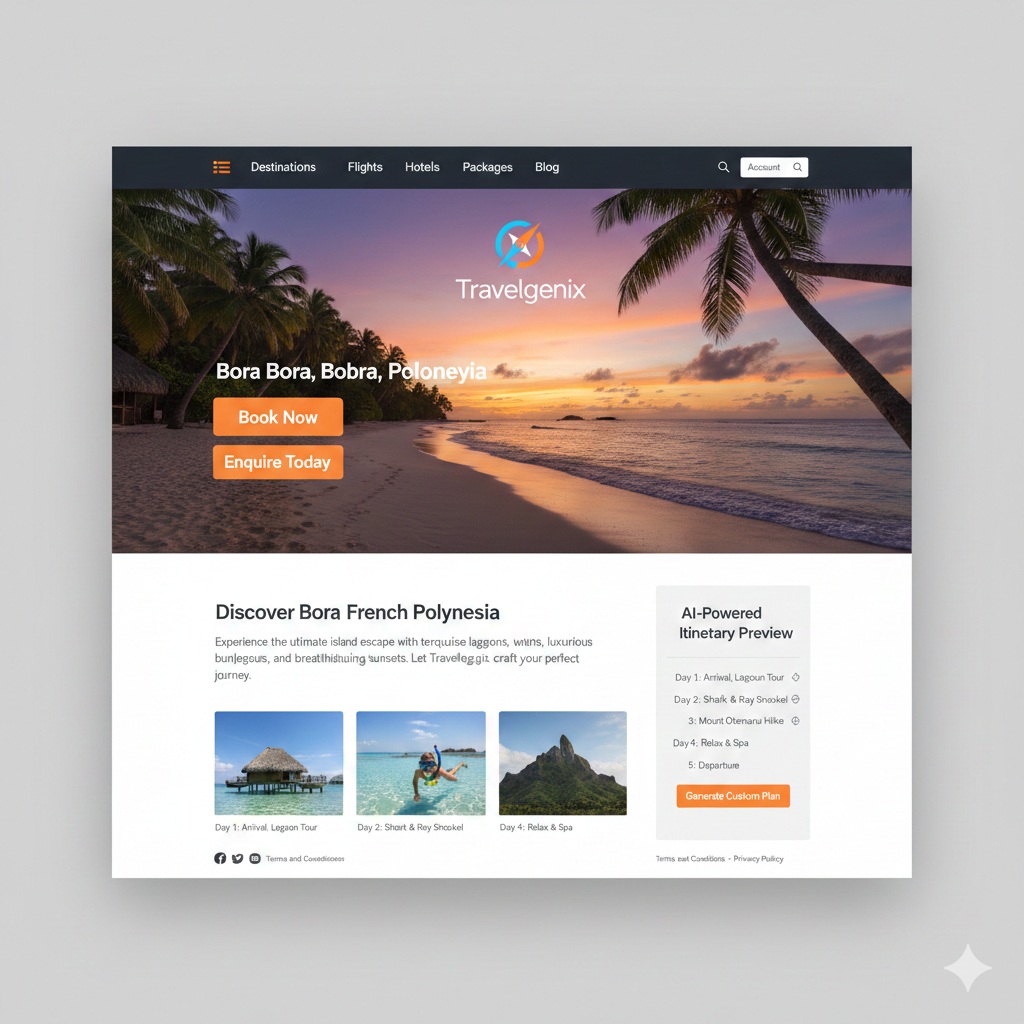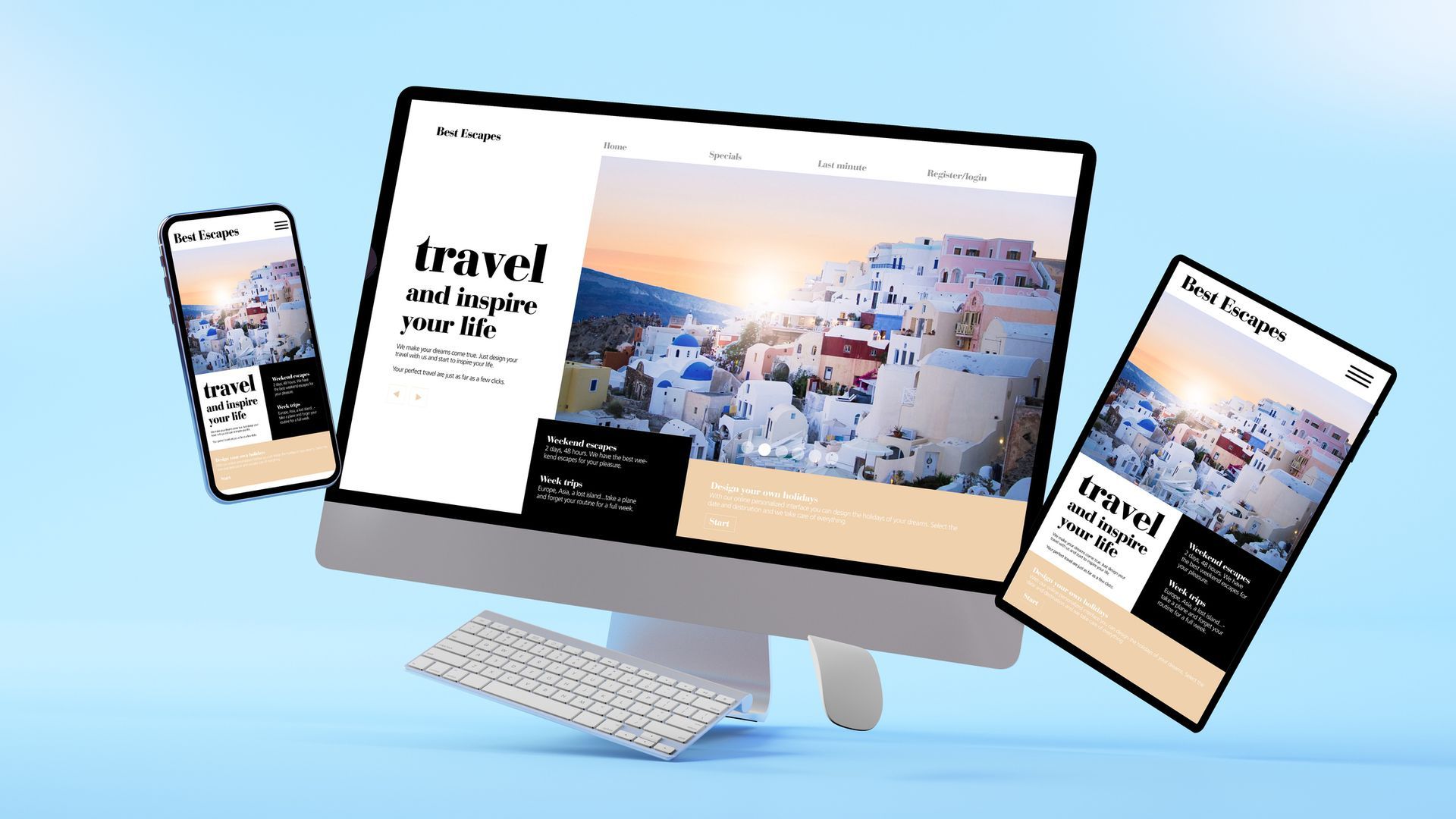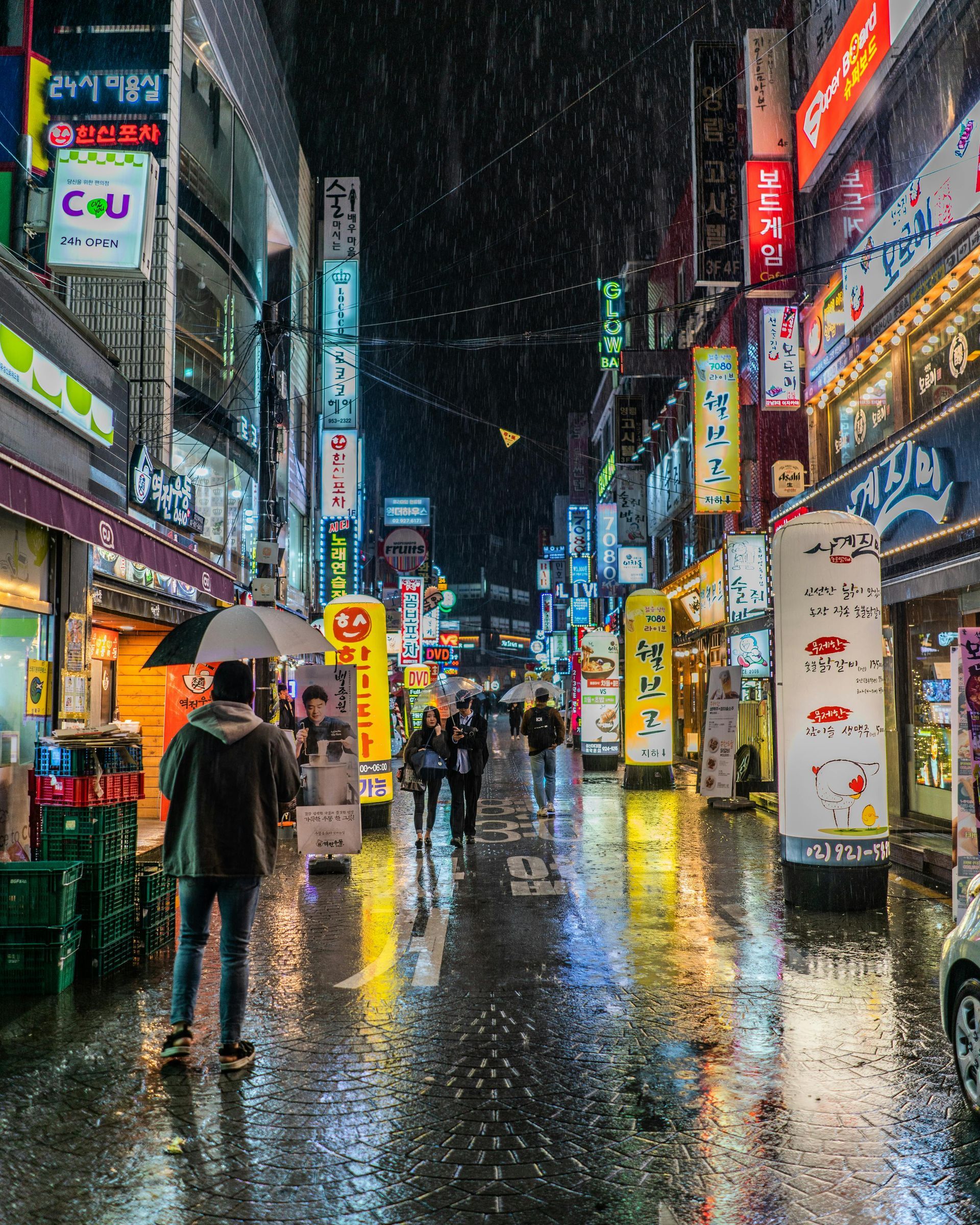Move Over, Google: Why OTAs Are the New Search Engines (And What It Means for You)
If you’ve been relying on the old "Google it" mentality to drive traffic to your travel business, it might be time for a serious strategy rethink. For years, search engines were the undisputed kings of the travel planning jungle. A potential client would type "hotels in Mallorca" into a search bar, and the race was on. But the digital tides are turning, and they are turning fast.
A fascinating new report has just dropped a bombshell on the industry: Online Travel Agencies (OTAs) have officially overtaken search engines as the primary starting point for travellers looking for hotels. Yes, you read that right. The giants like Booking.com and Expedia are no longer just booking engines; they are the new search engines.
For SME travel companies in the UK, this is a wake-up call. It’s a signal that the modern traveller demands convenience, instant gratification, and a seamless "look-to-book" experience. If your website is essentially a digital brochure requiring a phone call to close the deal, you might be missing out on the biggest shift in consumer behaviour we’ve seen in a decade.
In this post, we’re diving deep into the data, exploring why this shift is happening, and most importantly, looking at how independent agents can reclaim their slice of the pie with the right technology.
The Great Shift: OTAs Take the Crown
According to the latest Changing Traveller Report by SiteMinder, recently highlighted by Travolution, the landscape of hotel sourcing has flipped. The data reveals that 26% of travellers globally now begin their accommodation search directly on an OTA, up significantly from 18% last year. Meanwhile, those starting with a traditional search engine have plummeted from 36% to just 21%.
This isn't just a global blip; the UK market is mirroring this trend perfectly. UK travellers are increasingly bypassing Google and heading straight to platforms where they know they can see availability, compare prices, and read reviews all in one place.
Why the change? It comes down to User Experience (UX). OTAs have spent billions refining their interfaces to be addictive, easy to use, and incredibly efficient. They offer a "walled garden" of safety where a user can dream, plan, and book without ever opening a new tab. In contrast, a search engine often leads to a rabbit hole of disjointed websites, varying load times, and broken links.
The "Billboard Effect" is Alive and Well
Now, before you panic and think "I can't compete with Expedia," here is the silver lining. The report also highlights a crucial behaviour: the "Billboard Effect."
SiteMinder found that 18% of travellers who start their search on an OTA actually end up booking directly with the provider. They use the OTA as a catalogue to filter their options, but then they go hunting for the direct brand website. Why? They’re looking for a better price, a direct relationship, or exclusive perks.
This is your golden moment. If a potential client finds a hotel or package they like on a big site, but then searches for your agency or the specific property you represent, what do they find?
If they land on a professional, bookable website that looks just as slick as the OTA, you have a high chance of winning that booking. But, if they land on a slow, outdated site that asks them to "Enquire Now" via a contact form, they will bounce right back to the OTA to complete the transaction. In 2025, friction is the enemy of revenue.
Key Takeaways
- The Search Landscape Has Flipped: For the first time, more travellers start their hotel search on OTAs (26%) than on traditional search engines (21%).
- The "Billboard Effect" Opportunity: 18% of users browse on OTAs but switch to direct channels to book—provided there is a seamless, bookable website waiting for them.
- AI is the Next Frontier: While still emerging, AI usage for travel planning has quadrupled, with 80% of travellers now desiring AI-powered features like price alerts.
The AI Revolution and Gen Z
It’s not just about where people search; it’s about how they search. The report notes that AI usage as a first step in travel planning has risen to 4% globally, which might sound small, but it’s growing rapidly—especially among Gen Z and Millennials.
These younger demographics are digital natives who expect technology to do the heavy lifting. They want dynamic pricing, personalised recommendations, and instant answers. If your business is running on spreadsheets and manual quotes, you are effectively speaking a different language to the next generation of travellers.
UK travellers, in particular, are showing a healthy appetite for tech, with 60% intending to use AI at some point during their trip planning. They want technology that monitors prices, suggests itineraries, and simplifies the complex web of travel logistics.
Why SME Agents Must Become "Tech-Enabled"
The dominance of OTAs proves one thing: consumers value the technology of booking as much as the travel product itself. The convenience of a bookable website is no longer a "nice-to-have" luxury for big corporations; it is the baseline expectation for any credible travel business.
For many SME travel agents, this feels like an impossible hurdle. Building a website that rivals the big players used to cost tens of thousands of pounds and require a team of developers. But this is where the narrative changes. You don't need a Silicon Valley budget to have Silicon Valley tech.
How Travelgenix Levels the Playing Field
At Travelgenix, we built our platform specifically to solve this problem. We believe that independent travel agents are the heart of the industry, and they shouldn't be priced out of the digital booking space.
If the stats show that travellers want a "browse-and-book" experience, our Ignite plan delivers exactly that. It gives you a fully bookable website where your clients can search for hotels, flights, and transfers just like they would on an OTA. But unlike an OTA, it’s branded to you, keeping your expertise front and centre.
Furthermore, with the rise of AI, our Luna AI booking assistant ensures you aren't left behind. Luna helps you generate AI-powered quick quotes and dynamic packages in seconds, not hours. This allows you to meet the speed and efficiency demands of modern travellers while adding the personal touch that big OTAs can never replicate.
When you combine the personal service of an expert agent with the instant bookability of a Travelgenix website, you offer something the giants can't: the best of both worlds.
Conclusion: Adapt to Win
The shift from search engines to OTAs is not a death knell for independent agents; it is a roadmap for evolution. It tells us exactly what customers want: speed, clarity, and bookability. By adopting the right technology, you can capture the "billboard" traffic, serve the tech-savvy generation, and grow your business in this new digital era.
Here are five actionable ways you can start today.
5 Actionable Tips for SME Travel Companies
- Get Bookable, Fast: If your website creates friction (e.g., "Call for Price"), you are losing the 26% of people who want instant gratification. Invest in a platform like Travelgenix that allows real-time booking for hotels and flights.
- Audit Your "Digital Shop Window": Google your own business. If a client switches from an OTA to check you out, does your site look trustworthy? Ensure your branding is sharp, your site loads fast, and your contact info is front and centre.
- Leverage "Niche" Expertise: OTAs are generalists; you are a specialist. Use your blog and landing pages to answer specific questions OTAs can't (e.g., "Best hotels in Cornwall for dogs with anxiety"). This captures long-tail search traffic that OTAs miss.
- Embrace AI Tools: Don't fear the robot. Use AI tools to speed up your itinerary building and social media writing. This frees up your time to focus on complex customer service—the one thing AI can't do better than you.
- Encourage Direct Relationships:
When a client books, gather their data (compliantly). Use email marketing to keep them in your ecosystem so their next search starts in your inbox, not on an OTA or Google.




